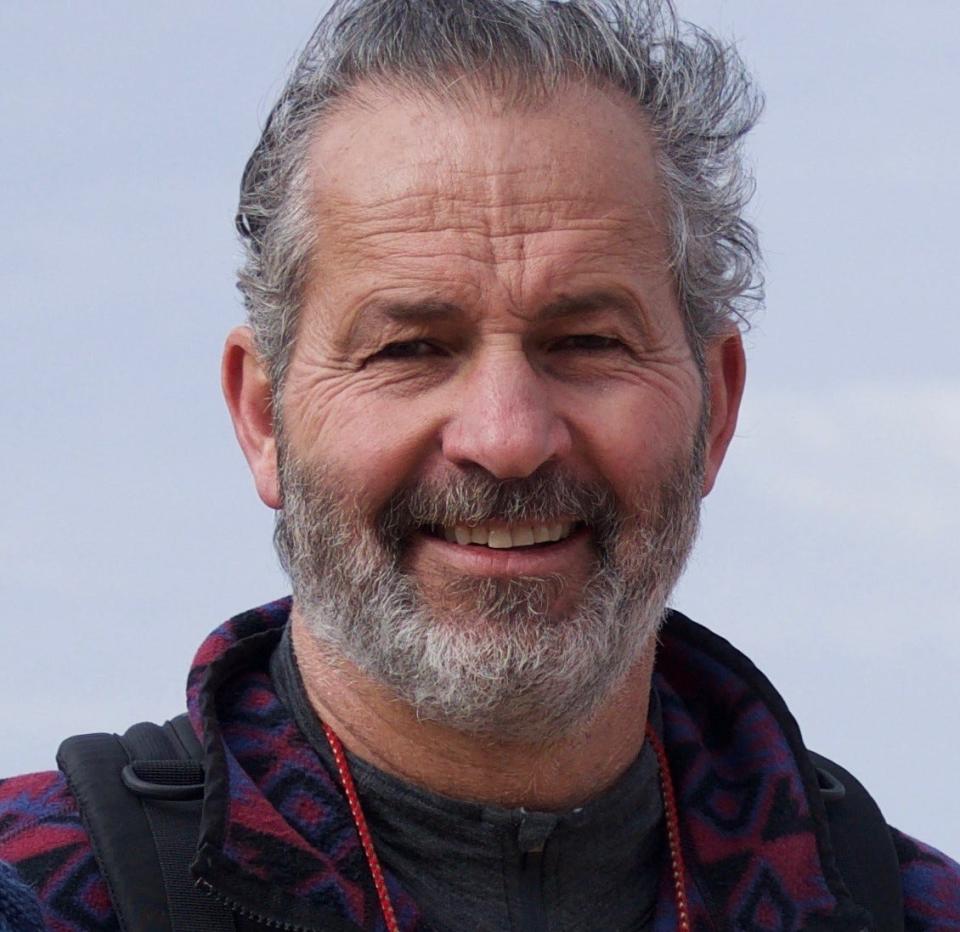Shea: Perspective on U.S. gun violence from school in the Horn of Africa
ADDIS ABABA, Ethiopia — I’m sitting with Bernadette, her son, and Seifu in the waiting area of a rundown building in central Addis Ababa. We’re at the Foreigners & Consular Services Office of the Department for Immigration & Nationality Affairs on a Friday morning in early February. We’ve been waiting for two hours, and we’ll be here another three – not counting a long lunch break at a burger place down the street. One of the oldest Christian nations in the world, Ethiopia is also about a third Islamic – and the special Friday noon prayer, salat al-jum’ah, is obligatory for Muslim men and must be done in congregation. And the immigration office won’t reopen until everyone is back.

It's 78 degrees and sunny in Addis. I’ll remember this because it’ll be 78 and sunny without a drop of rain – for 56 days in a row – from my arrival in early January until my first trip back home in late February. Not a drought, just the natural dry season. The rain will begin in the spring. We’re close to the equator, but we are at about 7,700 feet of elevation, on the edge of the Ethiopian Highlands and the Great Rift Valley. Other parts of Ethiopia and the greater Horn of Africa do get quite hot – and have experienced several years of drought and growing famine. I will recall being in college in the 1980s when as many as a million Ethiopians died from famine – due to both drought and conflict in the Tigray region. Probably the first I thought much about this extraordinary country.
There are maybe two hundred of us in the waiting area. No more than 10 of us are white. There’s no Wi-Fi. The bathrooms in the basement are neither easy to find nor clean. A small shop sells small cups of coffee served on small tables encircled by small handmade stools – for 10 or 15 birr (about 25 cents) – via a traditional coffee ceremony that begins with a young woman roasting the beans over an open flame before grinding them by hand. No one is in a hurry. Ethiopia is recognized as the birthplace of coffee, home of the coffea arabica plant and well-known beans from Harar, Sidamo, Yirgacheff, etc. All this is mostly lost on me – someone who loves vending machine coffee at toll road rest stops.
Trips like this to the immigration office are an expatriate ritual. They might seem like a nuisance, but they’re a gift. Invariably you are thrown together with a few other expat colleagues, like Bernadette and her son, both Ugandans, and someone like Seifu, the local staff member who does a bit of everything, is both patient and persistent, and speaks several languages (Amharic the most important among them today) – and you have very little to do but talk with one another.
I’m here because Dr. Gemechis, an Ethiopian-American who had the audacity to open an international school for a 1,000-plus students in his home country during a pandemic and a civil war, asked if I’d come out to help get the school back on track after a tumultuous first few years. Bernadette moved here to teach, earn a living, and see that her son gets a good education. Seifu is here, at home, working hard at a school he cares about and providing for his young family – a wife, 3-year-old son, and baby on the way.
Bernadette’s son is a day shy of 15. Our conversation turns to what he might want to do after graduation. He plans to go to college – likely outside Africa, possibly in Europe. I ask if they’ll be considering U.S. schools. Bernadette hesitates. She is soft-spoken, thoughtful, respectful. “I worry about the guns.” She asks if it’s as bad as it seems. We are in the middle of the Horn of Africa, and she is worried about her son being safe at an American university. I’m disheartened but not surprised. The United States is the only country on the planet with more guns than people. Yemen, our war-torn neighbor to the northeast, is second. A very distant second. Well over a hundred people, on average, are killed by guns every day in the United States. In just the first five weeks of 2023, we were averaging more than one mass shooting a day. I explain to Bernadette – “four or more people killed or injured in a single shooting incident.” How bizarre and brutally sad that we have need for such a statistic. I do tell her that most gun violence has nothing to do with our schools. The problem is much bigger than the school shooting headlines. Not a particularly comforting thought. We move the conversation to other things.
Ten days later, three students will be shot dead at Michigan State. It’ll be a few days before I learn about it. I feel we Americans are getting numb to the violence. More than a hundred other people were likely killed by guns in the United States on that same day. When I see Bernadette in school, I’ll ask if she’s heard. She’ll nod – and neither of us will have anything more to say.
John Shea, a Kittery, Maine, resident and occasional contributor to these pages, is currently serving as the interim head of school of Cambridge Academy Ethiopia in Addis Ababa. This is the first of a series of several commentaries.
This article originally appeared on Portsmouth Herald: Shea: Perspective on U.S. gun violence from school in Horn of Africa

